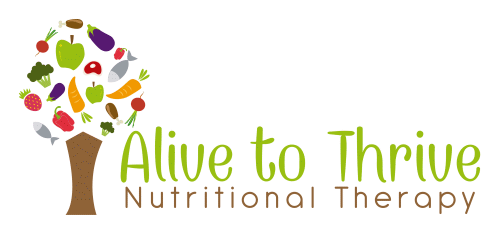In our germ filled world with increasingly virulent bacteria, it is important to keep the immune system strong. Yesterday I learned of a sweet friend’s frightening health challenge. Last summer, she was bitten by a wasp and the bite quickly became infected. The local infection spread to her blood and she became septic. After several rounds of antibiotics and an overnight hospital stay, her infection finally was under control. The bacteria that infected her arm and later her blood obviously was a very strong and powerful invader.
I decided to put together this list of ways to strengthen the immune system to help her and others like her who want to improve their immune system naturally. When our immune systems are strong, our bodies can naturally fight off foreign invaders like bacteria and viruses.
Six Ways to Strengthen the Immune System
- Avoid sugar. Sugar consumption suppresses the immune system in two ways. First, sugar intake leads to nutrient depletion. When our bodies don’t have sufficient nutrients, our immune system can not function optimally. Secondly, sugar is a direct immune suppressant. (1) If you suspect you are coming down with a cold or an infection, avoid sugar like the plague! I have witnessed the effects of sugar on the immune system first hand on the health of myself and my family. Sugar resides in most processed foods. Read the food label and don’t eat it if there are more that 10 grams of sugar per serving. Food labels are deceiving, look closely at the ingredient list for hidden names for sugar. These hidden names don’t have to be included in the amount of sugar per serving part of the label. Hidden words for sugar include: ____ syrup, _____ose, maltodextrin, etc. Avoid fruit juice since it is concentrated sugar. It is better to eat the fruit instead of drinking the juice.
- Eat a nutrient rich diet. This includes both fresh fruit and vegetables, (organic where possible) organic or pasture raised poultry, grass fed beef and wild caught fish. Organ meats from clean animals provide many nutrients and are relatively inexpensive. In addition, properly prepared grains (avoid non organic wheat and corn products) and raw (farm fresh) dairy can be great sources of nutrients.
- Get plenty of sleep. It is a fact that a well rested body fights off infection easier than a tired body.
- Eat probiotic rich food. This is especially important if you have been on many rounds of antibiotics. Probiotics help put healthy bacteria back into our digestive tracts. These healthy bacteria help strengthen our immune system. See my resource page for links to easily make or purchase probiotic-rich vegetables. Lacto-fermented vegetables are also found in the refrigerated section of health food stores near the probiotic supplement area. My favorite store bought probiotic vegetable is Wildbrine’s Japanese Kimchi. Start out eating fermented foods slowly. Increase as tolerated if no digestive or other adverse effects are observed. Probiotic supplements are an alternative to eating probiotic rich foods.
- Take Caprylic Acid. Caprylic Acid has antibacterial, anti-fungal, antiviral and anti-inflammatory properties. Most importantly, Caprylic acid can help control candida which normally overgrows after antibiotic or high sugar intake. Common candida overgrowth symptoms include: abdominal bloating, constipation, fatigue, irritable bowel syndrome and sugar cravings. I would start out slowly with dosing caprylic acid 400-500mg once daily for a few days. You can slowly add 400-500mg every few days up to 1000 mg three times daily. Continue with this high dose for up to a month or as long as improvement is still noted.
- Get out in the sun daily. 15 minutes in the sun daily (without sunscreen) will help boost your vitamin D levels. Don’t wash the sun exposed skin with soap for 48 hours after exposure. Vitamin D from the sun has to be absorbed through the skin. An easy way to stay clean and healthy is to use soap in the shower only for the underarm and groin areas when possible.
Other Ways to Help the Immune System
At the first sign of a cold or infection, I like to give myself or my family extra vitamin C, zinc, vitamins A and D (in the form of cod liver oil capsules) and probiotic supplements. At the recommendation of a holistic doctor, I often used a lymphatic drainage technique when my son was younger and had multiple chest and sinus infections. This doctor also recommended rebounding, echinacea, vitamin C and sinus rinses with Xlear nasal spray. These techniques and supplements worked remarkably well.
In addition, a good friend long ago recommended I avoid giving Tylenol or Advil for a fever unless absolutely necessary. At first this sounded extreme but it actually makes a lot of sense. While making us feel better, these anti-inflammatory drugs actually hinder the immune system by preventing our normal inflammatory and healing response to infection. Also, our bodies create a fever deliberately to help kill unwanted bacteria. Finally, Tylenol and Advil can artificially make us feel better and keep us working or playing instead of listening to our bodies and resting. This lack of rest further delays our recovery.
Like it or not, increasingly powerful antibiotic-resistant bacteria live in our environment and on our skin. Fortunately, there are many things we can do to strengthen our immune system. Our bodies can heal naturally if given the rest, and nutrition needed. Try a few or all of these methods and see for yourself how your health and immune system can improve naturally.
Reference:
(1) Albert Sanchez et al., ” Role of sugars in human neutrophilic phagocytosis,” The American Journal of Clinical Nutrition, Volume 26, issue No. 11, pages 1180-1184. Nov 1973.




